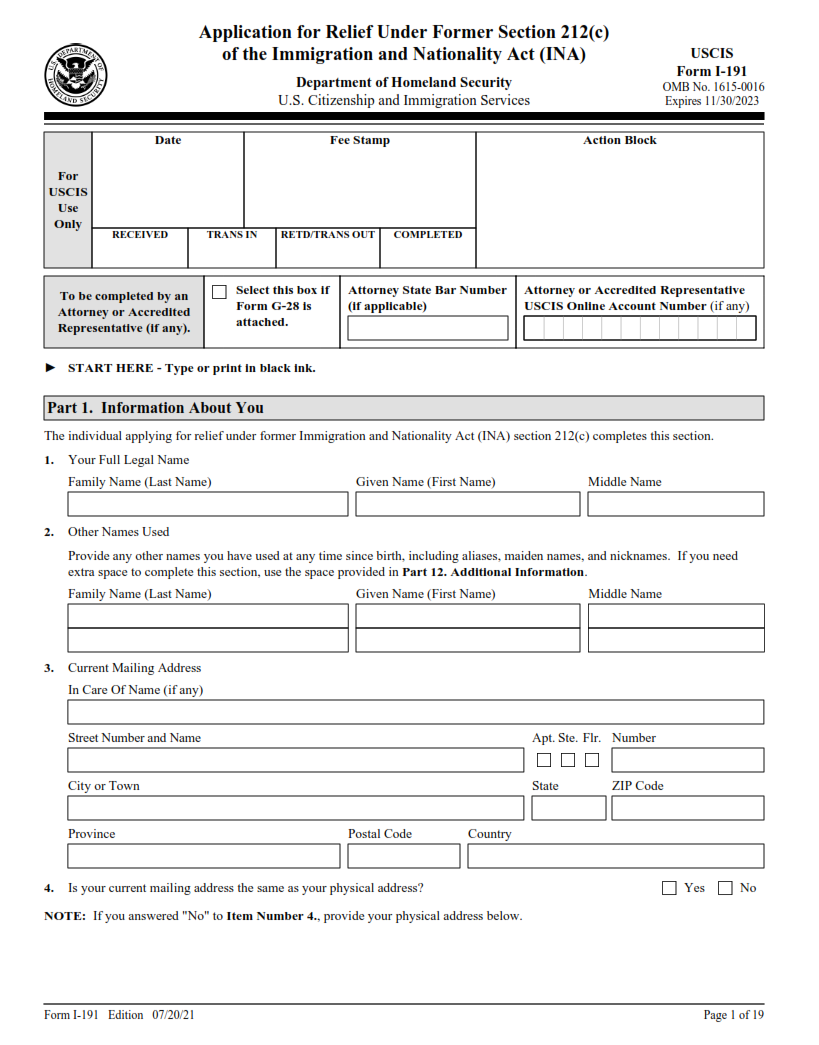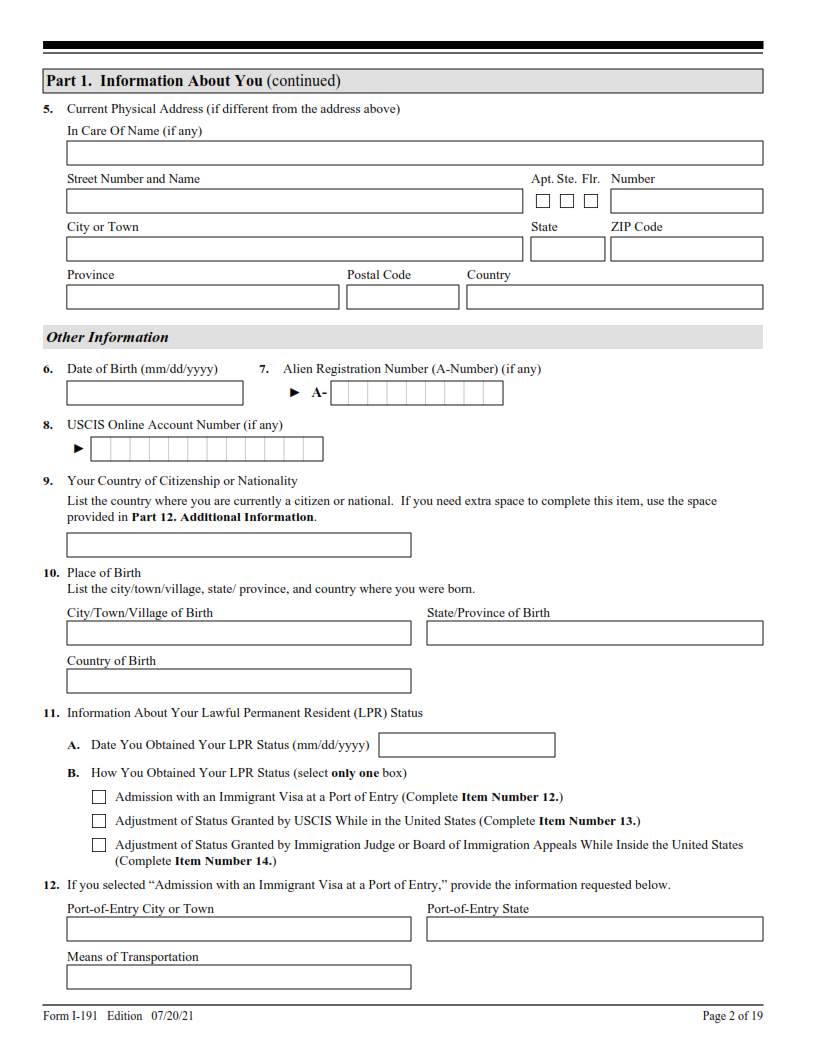FINDERDOC.COM – I-191 Form – Application for Relief Under Former Section 212(c) of the Immigration and Nationality Act (INA) – The I-191 form, or the Application for Relief Under Former Section 212(c) of the Immigration and Nationality Act (INA), is designed to help provide relief from certain immigration consequences that noncitizens may face. The form was introduced as an addition to the INA in 1992, allowing individuals subject to deportation proceedings to apply for discretionary relief. This article will provide a comprehensive overview of the I-191 form, including its purpose, eligibility criteria, and application process.
Download I-191 Form – Application for Relief Under Former Section 212(c) of the Immigration and Nationality Act (INA)
| Form Number | I-191 Form |
| Form Title | Application for Relief Under Former Section 212(c) of the Immigration and Nationality Act (INA) |
| File Size | 724 KB |
| Form By | USCIS Forms |
What is an I-191 Form?
The I-191 Form, also known as the Application for Relief Under Former Section 212(c) of the Immigration and Nationality Act (INA), is an immigration form used in the United States. This form is meant to provide relief from deportation to aliens who may have been convicted of certain crimes or violations of immigration law and have resided legally in the United States for a long period of time.
By filing this form, applicants can potentially avoid deportation by either having their convictions waived or their sentences reduced. The eligibility requirements for this form are fairly strict and typically include at least five years’ residence inside the United States before being convicted, no serious criminal offenses committed since then, and proof that deportation would cause extreme hardship to U.S. citizens or Green Card holders related to them.
What is the Purpose of the I-191 Form?
The I-191 form is an application for relief under the former Section 212(c) of the Immigration and Nationality Act (INA). This form was created to provide a way for certain individuals who have been convicted of a crime in the United States to request permission to remain in the U.S., even if they are subject to removal proceedings.
In order to be eligible for this type of relief, applicants must have been lawfully admitted into the U.S., have at least seven years of continuous physical presence prior to their conviction and must not have committed any aggravated felony or any other offense that would make them ineligible for a waiver under INA 212(c). If approved, applicants may be able to avoid deportation or receive other forms of immigration relief, such as adjustment of status.
Where Can I Find an I-191 Form?
If you are looking to apply for relief under former Section 212(c) of the Immigration and Nationality Act, then you will need an I-191 form. This is a form that must be filled out completely and submitted to the USCIS in order to begin the application process. The I-191 form can be found on the official USCIS website or through a third-party provider such as eForms or FormsNow.
Before filling out an I-191 form, applicants should make sure they have all documents needed for their application. These may include evidence of lawful admission into the United States, proof of residence in the U.S., proof of marriage or family relationship with a U.S citizen, and other important documents related to your case.
I-191 Form – Application for Relief Under Former Section 212(c) of the Immigration and Nationality Act (INA)
The I-191 Form is an application for relief under the former Section 212(c) of the Immigration and Nationality Act. This form provides a way for certain non-citizens to seek discretionary relief from deportation or removal from the United States. The I-191 Form can be filed by those who entered the US before April 24, 1997, were convicted of a criminal offense, and are subject to deportation or removal proceedings.
To be eligible for relief under this program, applicants must demonstrate that they have maintained continuous residence in the US for at least seven years prior to their deportation or removal hearing. Additionally, applicants must show that they have been rehabilitated since their conviction and that their continued residence in the US would not have any adverse effect on public safety. Those who successfully meet these criteria may be granted permanent residency status in the US without having to go through formal immigration proceedings.
I-191 Form Example

